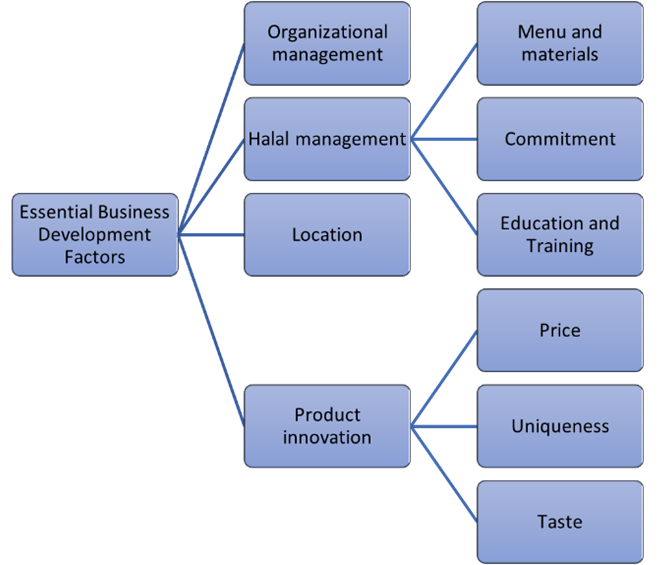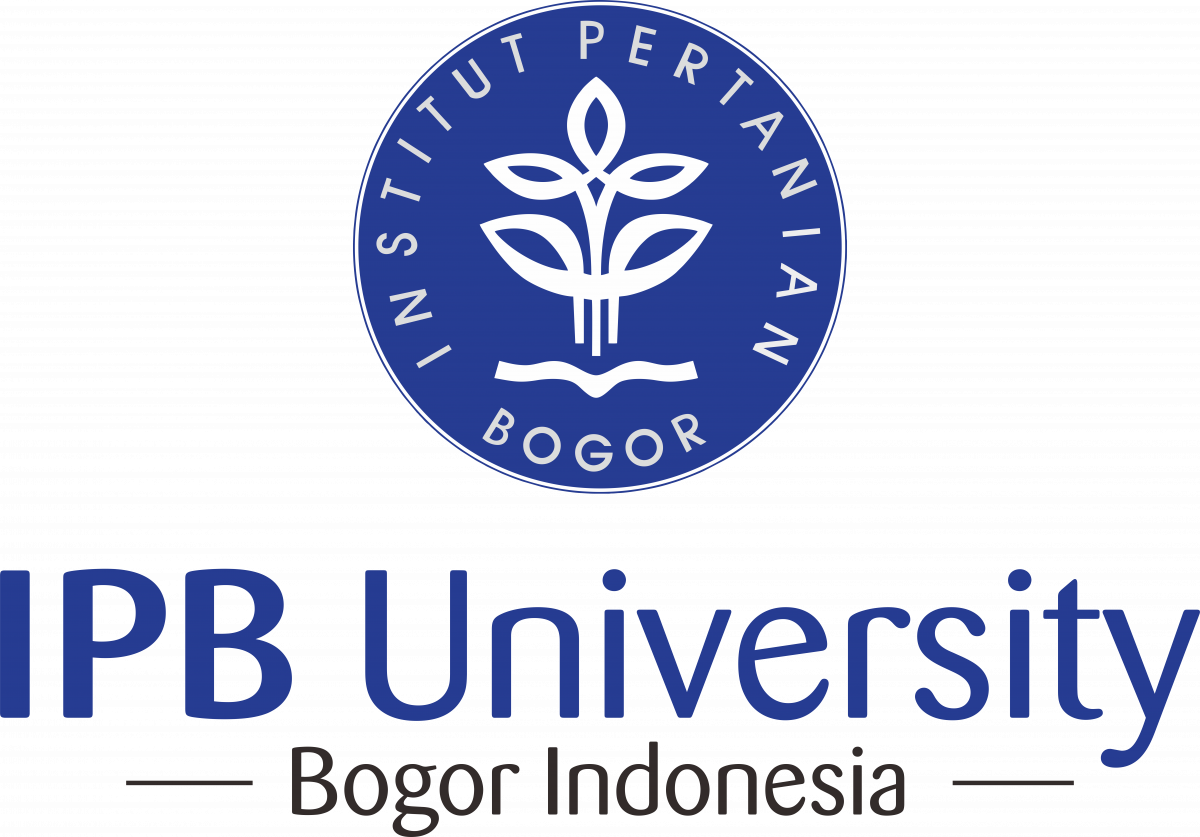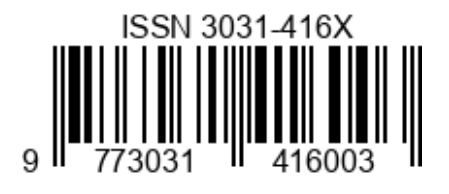Implementation of the halal assurance system and MSME business development strategy: The case of a coffee shop
Abstract
This study aimed to assist Micro, Small, and Medium Enterprises (MSMEs), specifically Dakara Coffee in meeting the requirements of the Halal Assurance System (HAS) 23000. Primary and secondary identification methods were used to implement the HAS Manual in this analysis. The HAS Manual which was designed for the specific conditions of Dakara Coffee comprised 11 criteria. The results showed that several identified food and beverage ingredients did not meet the HAS 23000 criteria and lacked supporting documents. Furthermore, several improvements were recommended such as replacing materials that did not comply with HAS 23000 and completing documentation for food and beverage ingredients. By using the Analytical Hierarchy Process (AHP) method, the primary priority for the business development of Dakara Coffee was identified as location, followed by other aspects including halal management, branding strategy, product innovation, and organizational management.
References
Arief DK. Implementasi Manual Sistem Jaminan Halal dan Higiene Sanitasi di Rumah Makan Angkringan Khas Jogja Mas Bowo Bogor. 2021. Skripsi. Institut Pertanian Bogor, Bogor.
Assyfa CA. Implementasi Hygiene Sanitasi dan Manual Sistem Jaminan Halal di Rumah Makan Ayam Geprek Ireng Bogor. 2018. Skripsi. Institut Pertanian Bogor, Bogor.
Effendi U. Dr. KH. Ma'ruf Amin: Motor Penggerak Eksplorasi Fatwa Halal Kontemporer. 2013. Lembaga Pengkajian Pangan, Obat-obatan, dan Kosmetika Majelis Ulama Indonesia (LPPOM MUI), Jakarta.
Hartoyo YS. Implementasi Manual Sistem Jaminan Halal dan Sistem Higiene Sanitasi di Rumah Makan Sop Ayam Pak Min Klaten di Bogor. 2016. Skripsi. Institut Pertanian Bogor, Bogor.
LPPOM MUI. Panduan Umum Sistem Jaminan Halal MUI. 2008. Lembaga Pengkajian Pangan, Obat-obatan dan Kosmetika Majelis Ulama Indonesia, Jakarta.
LPPOM MUI. HAS 23000: Persyaratan Sertifikasi Halal. 2012. Lembaga Pengkajian Pangan, Obat-obatan dan Kosmetika Majelis Ulama Indonesia, Jakarta.
Priyoga A. Implementasi Manual Sistem Jaminan Halal dan Keamanan Pangan di Kafe Terminal O Bogor. 2018. Skripsi. Institut Pertanian Bogor, Bogor.
Qushai D. Implementasi Manual Sistem Jaminan Halal dan Hygiene Sanitasi di Rumah Makan Muara Kapuas Sleman. 2021. Skripsi. Institut Pertanian Bogor, Bogor.
Saaty TL, Vargas LG. Models, Methods, Concepts & Applications of the Analytic Hierarchy Process. 2nd Edition. 2012. Springer, New York. https://doi.org/10.1007/978-1-4614-3597-6
Sekaran U, Bougie R. Research Methods for Business: A Skill Building Approach. 2016. John Wiley & Sons Ltd, Chicester.
Suryadi M, Dharmayanti D. Analisis daya saing untuk meningkatkan kualitas layanan terhadap pelanggan dengan pendekatan CRM di CV Blitzspot. Jurnal Teknisi. 2017;3(1):61-72. https://doi.org/10.25077/TEKNOSI.v3i1.2017.61-72
Tambunan T. UMKM di Indonesia. 2021. Penerbit Ghalia, Jakarta.
UU. Undang-Undang Republik Indonesia. Undang-undang nomor 33 tahun 2014 tentang Jaminan Produk Halal. 2014. UU, Jakarta.

Copyright (c) 2024 Muhammad Ayyub Muslich, Asep Nurhalim, Mohammad Iqbal Irfany

This work is licensed under a Creative Commons Attribution-ShareAlike 4.0 International License.











